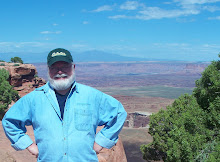Together, we have presented at over 110 churches and locations, ranging from the beaches of New Jerseys Shore to my birthplace, Scioto County Ohio. We have worked in auditoria, Sanctuaries, basements, and one of our favorite locations, a 1723 Barn turned Church.
Some churches want us to replace the sermon on Sunday, so we will present five hymns and stories; others want us to fill the whole morning service with music of the season, so we will present eight hymns. Organizations ask us to be their Holiday entertainment with a spiritual flavor and ask for a 45 minute program -- leaving time for Saint Nicholas' appearance.
Our busiest times of the year are Lent and Advent/Christmas. For the month of December this year, we have four bookings, calling for three different formats; one program will be repeated. I have begun working on these programs because of the lead time for us to rehearse and for me to organize and write the program into some sort of flow or theme, which is delightfully complicated by being invited back to a place and therefore not repeating what we did the last time we were there.
Among my favorite hymns of the season is "I Heard the Bells On Christmas Day." The text was written by Henry Wadsworth Longfellow in 1863 during the darkest part of the Civil War. Longfellow was the premier American poet of the 19th Century. The words that he strung together had a rhythm and a beat and a resonance that made them memorable:
"Listen My Children and You Shall Hear
of the Midnight Ride of Paul Revere.”
or
"By the Shores of Gitche Gumee,
by the shining Big-Sea Waters"
or
“ Under the Spreading Chestnut Tree
the Village Smithy Stands”
The year of 1863 had been a terrible year for Longfellow. His son, who had been in he war, was living now at home, recovering (but he never did) from a paralyzing wound. And in the summer of the year, Longfellow lost his beloved wife in a freak accident at home, a fire. Longfellow, himself, was badly burned trying to save her. Afterwards, he grew a beard to cover his burns.
And yet, the poetry flowed from him:
I Heard the Bells on Christmas Day
Their old familiar carols play,
And wild and sweet the words repeat
Of peace on earth, good will to all.







No comments:
Post a Comment